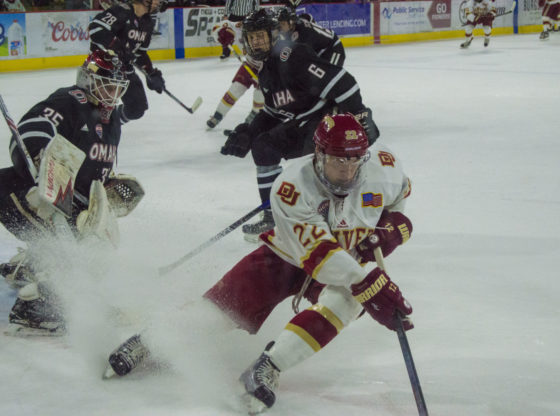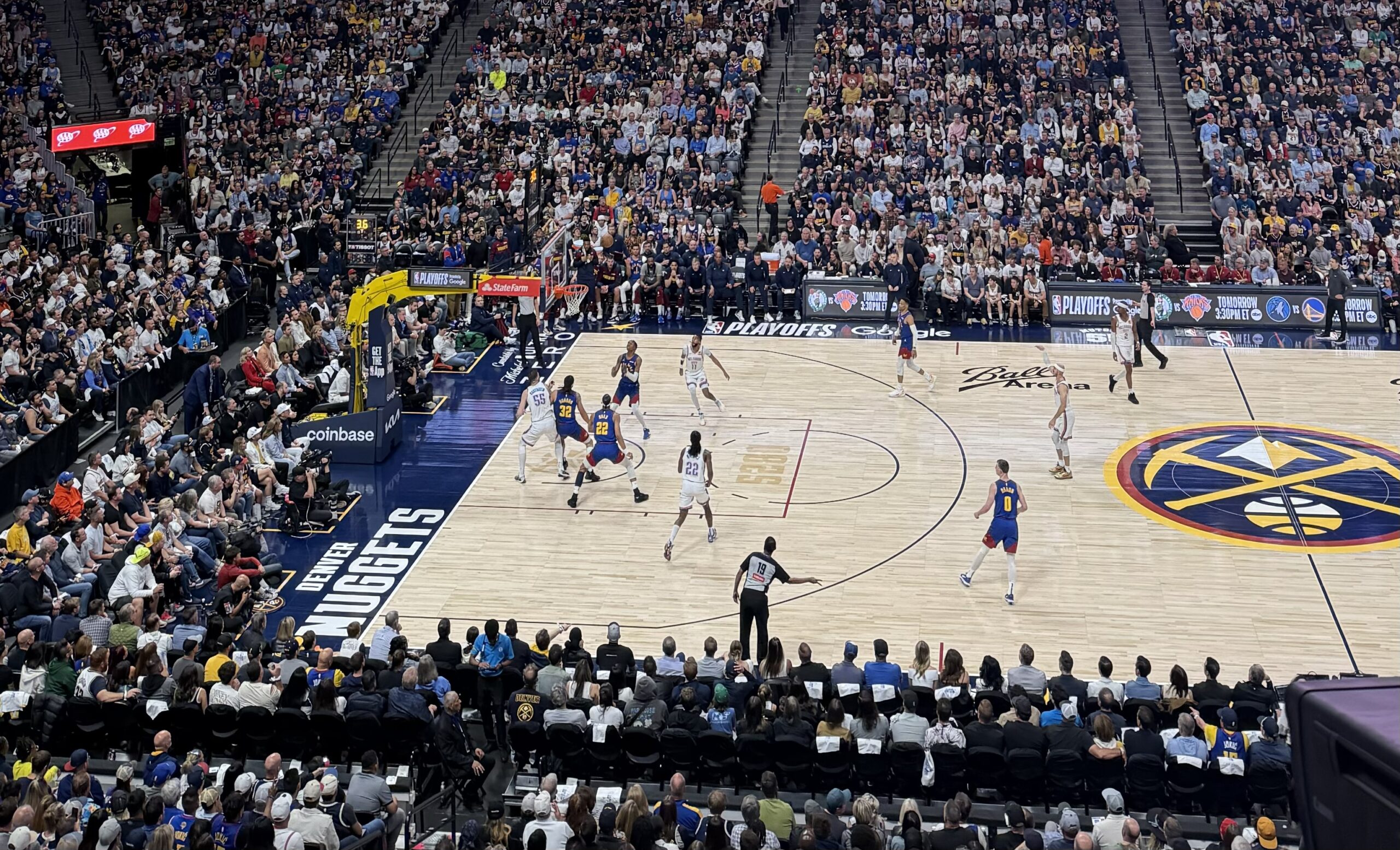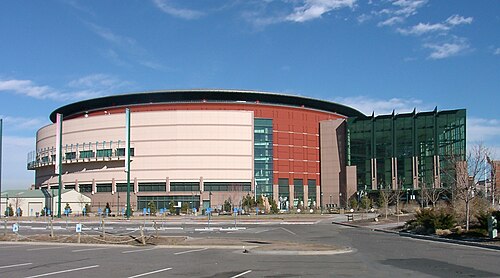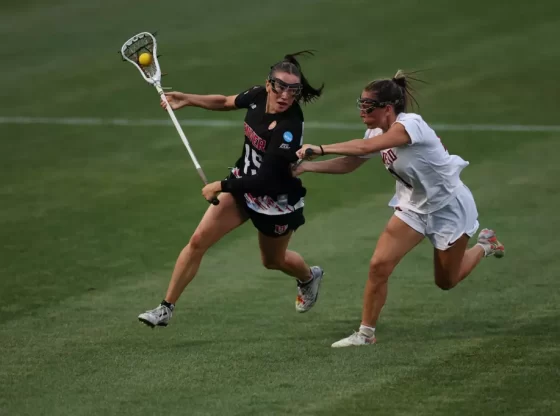At DU, the men’s lacrosse team and the hockey team share a strong relationship, always supporting one another both on and off the field, or ice.
“I think there is a really strong brotherly type of relationship amongst our department and throughout all the sports, and especially with lacrosse for us right now,” said hockey head coach George Gwozdecky.
For lacrosse, the bond initially began for the program with the arrival of head coach Bill Tierney.
“It’s interesting; when I came here, I started to realize who we were and the position we were in. Certainly, hockey being the team that had all the national championships, we really looked up to those guys,” said Tierney.
The relationship between the sports began with the coaches, but has trickled down into the players, creating an even stronger bond.
“I think it kind of represents what our whole athletic department is and all our student athletes are,” said Tierney. “But it’s kind of a special one because you’ve got the Canadian kids, the kids from New England prep schools and you’ve got the Colorado kids, so the demographic of the athletes on both teams is really similar. The style of guy it is and the style of play that the game is, they’re all really similar, so I think naturally they would be symbiotic.”
Between the Pioneer lacrosse team and hockey team, seven athletes come from Canada. Lacrosse has four players, Cameron Flint (Georgetown, Ontario), Mark Matthews (Oshawa, Ontario), Jeremy Noble (Orangeville, Ontario) and Wes Berg (New Westminster, B.C.) from Canada, and they play a style called Canadian box lacrosse. Hockey also adds three players from Canada, Sam Brittain (Calgary, Alberta), Joey LaLeggia (Burnaby, B.C.) and Shawn Ostrow (Calgary, Alberta).
Denver athletes often live in close proximity to each other in the first year in Centennial Towers, so the relationship begins in the first few weeks.
“[They were] some of the first guys that I met when I got here, and I’m pretty good friends with [lacrosse players] Jeremy Noble, Mark Matthews and Alex Demopoulos,” said hockey forward Jason Zucker. “They’re all good guys. They come to our games, we go to theirs and it has become a good friendship.”
Noble, a sophomore midfielder, has found their similar routines have grown the bond.
“I think the main thing is we almost go through the same routines of how hard we have to work, and then you have to hold yourself to expectations and stuff like that, so we can always relate to each other in that sort of sense,” said Noble.
There is a large crossover between the sports because many of the athletes grew up playing both, so the bond is an easy one to make.
“Personally, I’ve been friends with a lot of the lacrosse guys my three years I’ve been here,” said hockey forward Drew Shore. “I don’t think as a team we are necessarily as close with any other team on campus. I think a lot of the lacrosse guys grew up playing hockey, and a lot of the hockey guys grew up playing lacrosse. They’re a bunch of great guys, and we’re happy to have them as part of our school.”
The athletes for both teams have made it a point to support each other in their seasons, especially because hockey wraps up as lacrosse gears up and many are going through similar situations with several hockey and lacrosse players being drafted into the NHL and MLL, respectively.
“We feel like the hockey guys are pretty much our second teammates, and we have a great relationship with them on and off the field, obviously,” said lacrosse attack Alex Demopoulos. “We’re friends with all those guys and we have a pretty tight bond with them.”
The sports take on a similar style, both incredibly physical and fast paced, making it logical that they share a similar type of athlete.
Not only is it important for the teams to support each other, but they make it a point to show their support for the other sports as well.
“We want to make sure that we’re supporting [every team] and going to their events. I’ve gone to a few volleyball games, and I went to one gymnastics meet last year,” said Zucker. “So, we try to go to those events because we know they come to our games and support us, so we want to make sure that there’s that mutual respect and support throughout all the programs.”
The athletes also find personal support off the ice or field from the pseudo-teammates.
“They’re definitely guys you can run stuff through when you don’t really necessarily want to talk to a guy on your team about it,” said Shore about the lacrosse team. “If you’re struggling with something or having issues, a lot of them have been really good about stuff like that.”
The athletes are consistently showing their support to each other, not only in games, but they frequently use Twitter as a means of communication.
“Good luck to the @DU_MLAX boys today against Team USA! @markmatthews222 @jernoble45,” tweeted Shore to Noble and Matthews before their game against the U.S. Men’s Team on Jan. 29.
Matthews also tweeted at some of the hockey team prior to their games in Alaska Jan. 27-28.
“Good luck to the fellas in alaska this weekend. #staywarm #iminflorida #howstheweather @JasonZucker17 @drew_shore15 @BeauBennett78,” tweeted Matthews.
Matthews continued to show his support, wishing the team good luck prior to the Colorado College rivalry matchup.
“Good luck to the boys this weekend. #cc #goldpan,” tweeted Matthews.
The inter-team bond has grown and strengthened because of all of the success each team has experienced, with the lacrosse team competing in the NCAA Final Four and hockey winning seven national championships over the years.
“The athletes can appreciate what the athletes on the other teams go through to get there,” said Gwozdecky. “Not only the work, but the amount of pressure and stress, sweat and tears and issues that you have to deal with in a long season like hockey or lacrosse when you’re competing against the best.”
This relationship not only reflects well on DU, but on collegiate athletics in general, according to Gwozdecky.
“I think that’s part of the camaraderie that exists in college athletics. Pretty much everybody has a similar schedule, and everybody is vying for the same goals,” said Gwozdecky. “But I think with Bill here taking the program to the national level and the high profile that [he] has taken the program, I think it certainly has helped all the sports here.”









